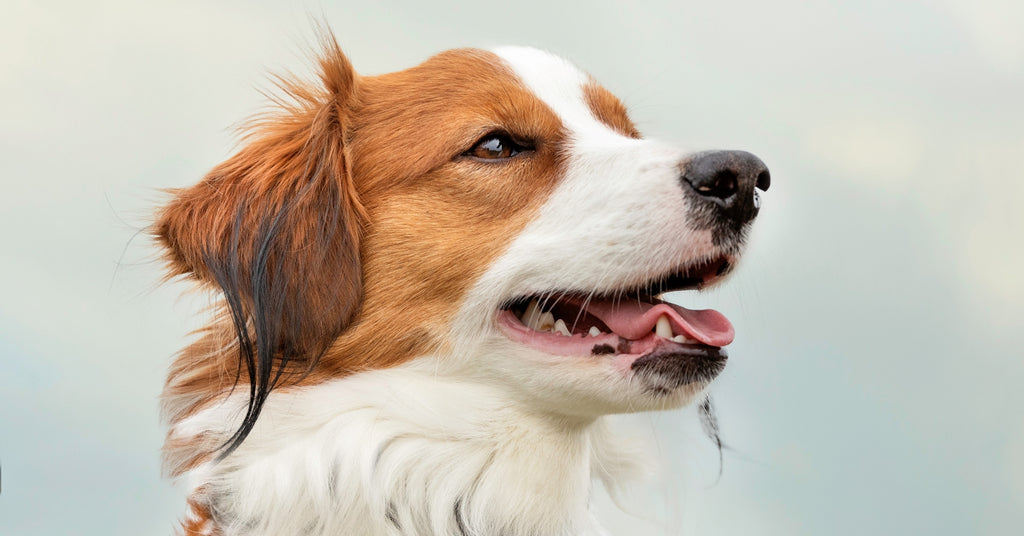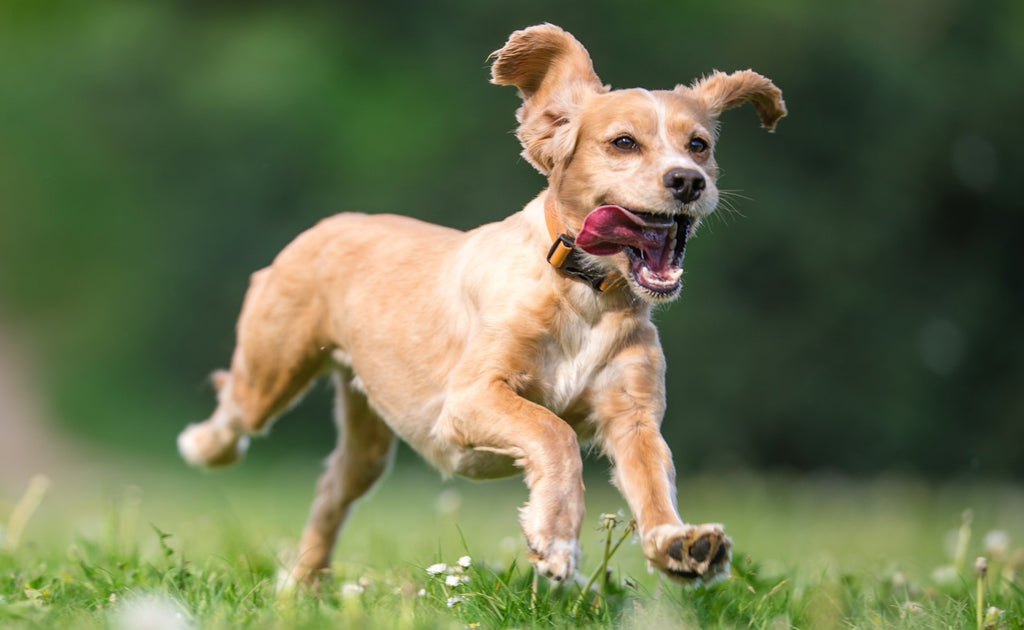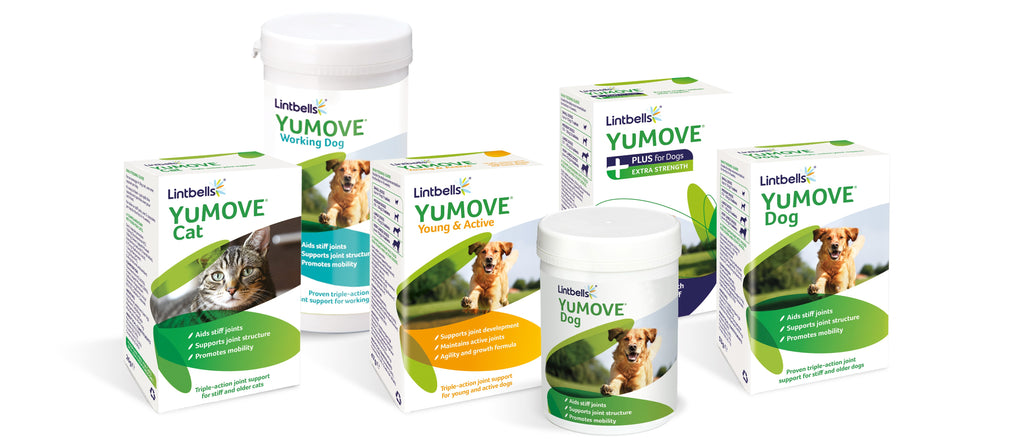
Signs of Stiffness: Lintbells survey results
In our latest survey, 41% of dog owners say their pet has stiff joints. This is distressing news for animal lovers. Luckily, though, there are lots of ways you can help. Here are a few ideas.
Spotting the signs
The majority of the 2,000 dog owners in our survey were confident that they could spot signs that their dog was not feeling on top form.
“I know my dogs well. When there is a problem, even if I am not sure what it is, I just know because I 'read' my dogs.”
Dog owners told us that the most common signs of joint stiffness were when there was a change in the way their dog walked or ran (63%), or when their pets were slow to get up on their feet after resting (62%).
Less jumping, walking and playing
Other signs included:
- A reluctance to jump up or down (61%)
- Being significantly slower than normal on the daily walk (59%)
- A reduced desire to play games (47%).
Does this sound like your dog? Here are the main signs of joint stiffness to look out for.
Steps, slopes and slippery floors
Where there were signs of stiffness, steps and slopes caused problems for around half of dogs (52%), while slippery surfaces such as laminate floors were difficult for just under a third of pets (31%).
How to help a dog with joint stiffness
It’s tough to see your furry best friend with stiff joints, especially if they’ve lost some of their bounce and enthusiasm for life. You want to see them out there, full of beans, tail wagging and raring to go.
So what can you do?
When concerned about their dog’s joints, 42% of dog owners from our survey had taken their dog to the vet for a general check-up.
“How did I help my dog? We asked the vet to come for a home visit.”
Faced with a dog with stiff joints, almost half of owners had shortened the distance of their walks and around a third went out for fewer walks.

Find our tips on exercising older dogs here.
Rethinking pet playtime
A quarter of owners had cut down on playtime with their pet in order to avoid making joint stiffness worse. If you think that your dog is less keen than before to race after a ball or jump up to catch a frisbee, the good news is that there are plenty of alternative games for you to play.
“I know something’s not right when my dog doesn’t lay on his back for belly rubs.”
We love the PetBloon balloon toy. Simply blow up an ordinary balloon, wrap the brightly-coloured cover around it, and your new game is ready to go. It’s much lighter than a rubber ball or a small football, so there’s less risk of dogs injuring themselves during play.
And if long walks are off the menu, keep your dog occupied with a treat-dispensing toy. Opt for a traditional Kong Wobbler or maybe a purple Busy Buddy Squirrel Dude. (OK, we admit it, we couldn’t resist the name.)
Adapt your home
In our survey, a quarter of respondents told us they’d adapted their home environment to make life easier for dogs with stiff joints. Changes included putting in ramps, steps, non-slip mats, transparent grip tape or laying carpets.
Swap shiny floors for non-slip mats
Wooden floors may look beautiful, but they’re hard work for canine pals with joint stiffness.
One suggestion is to lay down carpet instead. Another possibility is to put non-slip mats over wooden flooring so your dog can avoid skidding.
Avoid jumping and stretching

If your dog already has stiff joints, it can be a good idea to avoid too much jumping and stretching. Help your four-pawed friend stay mobile by:
- Using a ramp to get them in and out of the car
- Putting their food and water in raised-height dog bowls
- Providing an orthopaedic dog bed that helps cushion and support their joints.
Try a joint supplement
When we asked dog owners in our survey, 41% had given their pets supplements to help aid joint mobility.

We recommend YuMOVE to support healthy joint function and promote mobility. It’s the UK’s number one veterinary joint brand[1] and is clinically proven to work in just six weeks[2].
YuMOVE’s premium, natural formula is packed with ingredients that help soothe stiff joints, including ActivEase® Green Lipped Mussel. There’s specialist joint support for every kind of dog in the YuMOVE range, from canine athletes and working dogs to older dogs. It’s a great way to help prevent joint stiffness and promote your dog’s mobility long-term.
Ask us – we’re here to help!
If you’d like any advice on the right YuMOVE supplement for your dog, do get in touch by calling us on +44 (0)1462 416866 or emailing us at info@lintbells.com.
Or why not join the conversation with the friendly crowd of dog lovers over on our Facebook page?
[1] Kynetec VetTrack August 2019. Sales of YuMOVE branded products through veterinary wholesalers.
[2] Study conducted by Royal Veterinary College









